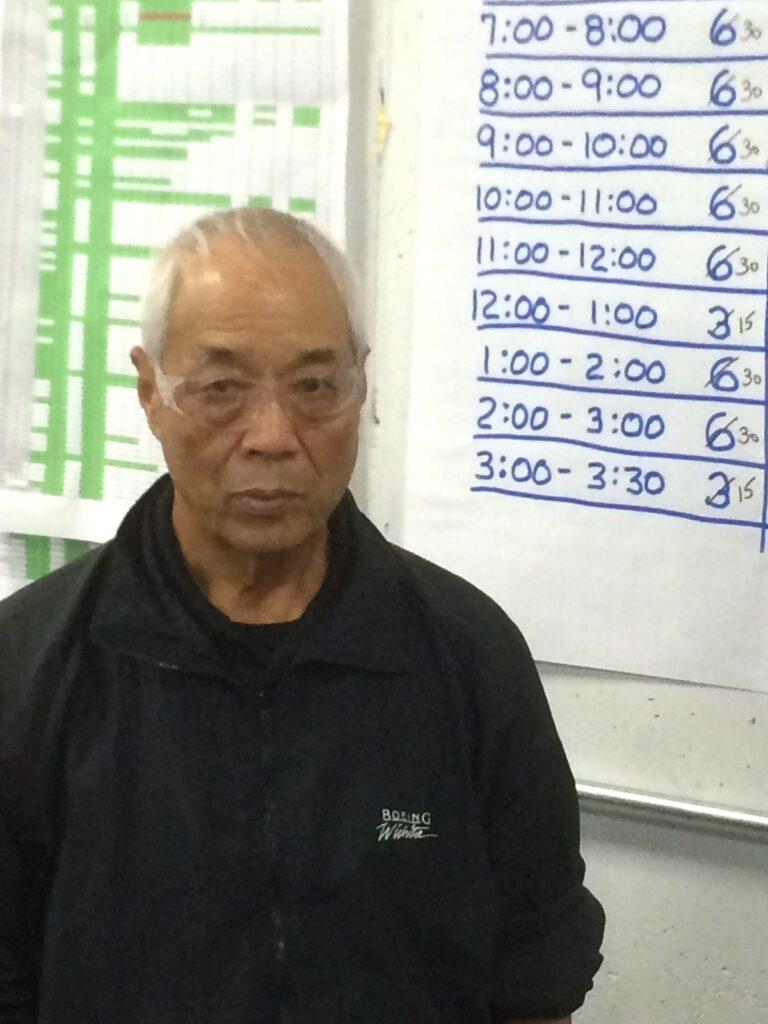
The first generation of Shingijutsu consultants, led by Yoshiki Iwata (d. 2001) and Chihiro Nakao are widely known for their expertise in kaizen consulting and helping organizations create TPS-like management systems since 1987. They are also known as “insultants” for their direct form of communication with managers, which is greatly appreciated by those who know them well.
Keep in mind that Iwata, Nakao, and others like them have vast knowledge of people and processes that greatly — greatly! — exceeds the knowledge of those they are insulting. Importantly, they are trying to get complacent managers to see the reality of their situation and quickly correct problems that threaten the company’s existence.
In the book Better Thinking, Better Results (p. 45), Art Byrne, the former CEO of The Wiremold Company, said:
At that time, Iwata, Nakao, and [Akiro] Takenaka weren’t used to working in the United States. They were pretty rough with people. They have since done a great deal more work with Americans and they have changed. But back in the 1980s, they would say things like: ‘You are an idiot! You don’t know anything! Why are you doing this? You’re stupid!’ Americans perceived that as insulting, but that was the way they worked.
In an article Art Byrne wrote, he had this to say about Shingijutsu kaizen consultants:
Most importantly, they taught us how to see — and learn how to eliminate — waste. They were very rough and called themselves ‘Insultants.’ But, boy, did we learn fast. We did whatever they told us to do even when we thought it was the stupidest thing we ever heard (which was about 50% of the time).
In a blog post from 2014, I said:
Mr. Nakao said Art Byrne never called him a ‘consultant.’ He called Nakao-san an ‘insultant.’ Nakao-san recalled how he used to say to managers, ‘Throw this out! Get rid of this! Close the warehouse! I used to ‘fire’ everyone; now only once in a while when someone gives an excuse. I am strict on people to get them to advance to the next level. Opportunities are everywhere.’
What people also do not realize is how creative, witty, and funny the insults are. You might not realize it when the insult(s) are directed at you, but later upon reflection, and to any observer, they are funny.
People who could not or would not get what the kaizen consultant was saying were called “concrete heads. This and other insults are messages of “tough love” and respect, believe it or not (some do not), knowing that managers can think and do much better if they are open to new ideas, new ways of thinking, and new practices instead of making excuses.
In recent years, Mr. Nakao says he has become “softer and sweeter.” That is true, but his words and his stare-down can still sting. It is rare to see him smile because most of what he sees in a company is not good, but he does joke around a bit with operators.
Beyond the insults and clever wit, which are surface-level communications, there is always a much deeper message for managers that reflect their serious concerns about people. Watch this short 2.5 minute video to learn what the message is.
Click here to listen to the entire podcast (67 minutes). Here is a transcript of the video:
I always liked that play on words., from ‘consultant’ to ‘insultant,’ and so basically what happens is that they’re very direct. And the reason why they are very direct is because they want to wake you up to the terrible situation you are in. That if you do not pay attention to what they are saying, you run the risk of the company going out of business and throwing people out of their jobs and not being able to serve the customers and wiping out the investors’ investments, the shareholders’ investments, and to create a blight on the community because you have closed your factory and to mess up your suppliers because you are no longer in business and so on. So they are trying to shake you and wake you up of [to] this reality. They’ll tell you directly, “you are a bad manager.” You’re putting the company at risk of failure, people losing their jobs, your company generates waste better than it generates the product or service. It’s more effective at generating waste than the product or service. So, they’re trying to help you see the reality. Now some people have a large negative reaction to being told in a very straightforward way that they’re not a good manager. But I always looked at this as, to me, from my perspective, even before I knew anything about kaizen, that this to me was motivating because what we could see is producing a better result in terms of the process. And that better results means there were just fewer problems and less reason to blame people for problems. And so it was like the sun rising. We could literally now see what’s going on when we couldn’t see it before. So the insults were just… some people make a big deal out of that, but that’s really just a minor piece of it. And to me it was a motivating piece of it.
